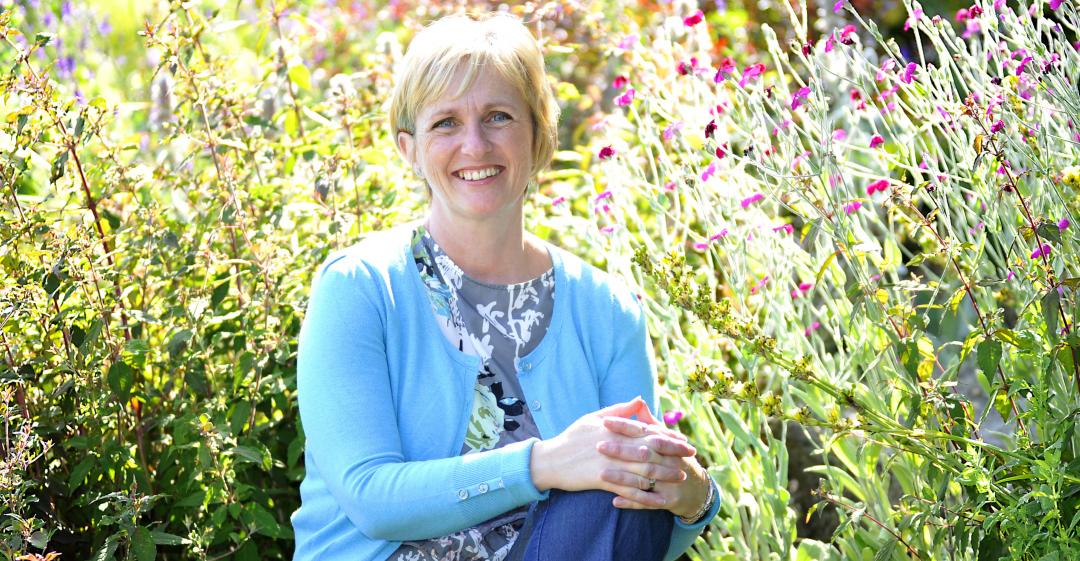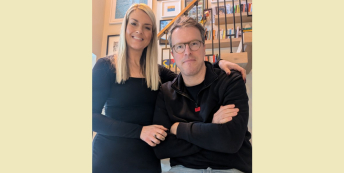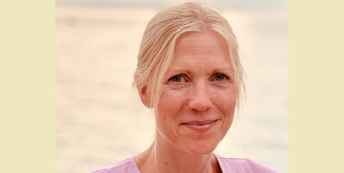“I felt I could put my strengths to a new use which helped people.”

What work were you doing previously?
For the past 25 years I I worked in a variety of public and private sector posts, starting in print and television journalism and then moving on to public relations and media management.
What are you doing now?
Since July 2013 I've had my own venture: 'Dragonfly Funerals' as a Civil Funeral Celebrant. I support the bereaved to plan a funeral service with little or no religious content, with the focus being on the life that was lived by the person who has died. I conduct the service, write the tribute material, and give my clients a keepsake copy of the ceremony script. I passionately believe in giving as much choice as possible to personalise the funeral.
Why did you begin your career change?
I have had a fantastic career to date and always found new learning and stimulus, but in recent years have felt my true vocation was yet to be discovered.
I had served on a board of trustees of a charity which owns and manages a working Victorian cemetery in Plymouth. This was a steep learning curve for us as lay people running a cemetery, and brought me in contact with funeral directors. One funeral director in particular stood out for his compassion and exceptional professional standards. When he asked me one day about my work, I said I felt it might be time to leave PR and half joked that I wouldn't mind doing his job! He told me there was no reason why that couldn't happen – he was a tutor for the National Association of Funeral Directors' Foundation Diploma Course in funeral directing. I studied the course whilst working in PR full time.
I passed the course, yet it became apparent that to start as a funeral director I would have to take such a big drop in salary that I couldn't afford to pursue it. I had a family and financial commitments which ruled out being a rookie funeral director, so I just thought a door had closed. In April 2013 the same funeral director asked whether I was still interested in working in the sector. He suggested I consider becoming a funeral celebrant because there wasn't one in the city, and more people wanted non-religious funerals.
I wanted to change my career because I felt I could put my strengths to a new use which helped people. Communication and an empathy with people from all walks of life could make a difference as part of supporting the bereaved.
When was the moment you decided to make the change?
After about five years of trying to move into the funeral sector and coming up against obstacles, it felt like all the jigsaw pieces fell into place. The timing felt right. I do believe in following my gut instinct and it felt like it was meant to be. Within weeks of having the suggestion put to me to be a funeral celebrant, I secured the last place available on a residential professional training course. Within two days of passing the exam and qualifying as a funeral celebrant, I was booked to do my first funeral.
Are you happy with the decision to change?
I feel energised and very happy with the change. It's genuinely a privilege to be trusted by a client to plan and conduct the funeral for them. It's creative planning the funeral ceremony, and immensely rewarding when my services exceed the expectations of the bereaved. I have received many gifts and thank you cards but for me there is no greater reward than when someone asks after a funeral I have conducted: “How did you know the deceased?” It means I captured the essence of the person they knew and lost.
How did you go about making the shift?
I planned the transition, because I had to continue with my PR job and bring in an income. I felt honesty was the best policy and informed my employer that I wanted to do the funeral work in addition to working for them. I gave my assurances that I would remain committed and professional for them, and they gave me the flexibility to do my funeral activity. I couldn't have done this without their amazing support, and recognition of why it was important to me to make this change with their blessing.
How are you handling your finances to make your change possible?
I've been able to work full time in PR, but have approved absence to do the funeral work without pay. The income for the funeral work has gone into a business account and not been drawn on for anything except business expenses.
How are you handling being in your current role whilst making the change?
It is not easy juggling both the PR and funeral celebrancy work but I have incredible support from my family, particularly my husband and daughters. I also have the backing of my employer. It often means working seven days a week or long days but I have a strong work ethic and know it's necessary if I am to achieve the full transition across to funeral celebrancy. It can be stressful maintaining high standards in both roles, but I won't let down the PR employers I owe much to, and clearly cannot let down the bereaved I serve.
How do you manage your time to make the change?
I set a realistic timetable from training and qualification, business set-up, creation of promotional material and my website, finding an accountant, liaison with funeral directors etc through to my official business launch. This was often done evenings and weekends but I found it was self-perpetuating. I had a real positive creative energy, so it didn't seem like a chore. My family also supported me by taking on some of the tasks I would usually have done.
What is the most difficult thing about changing?
Sustaining my stamina, and maintaining the transition commitments with the current PR job. Building up the new funeral work is challenging because I take my responsibilities seriously and don't want to let anyone down. Also, there's no way of predicting how busy the funeral work will be, so I anticipate it may be difficult judging when to tip the balance away from PR towards more funeral work.
And being patient... I have to give myself a stern talking-to when feeling frustrated by the pace of transition, because in reality I have achieved a huge amount in nine months!
What help are you getting?
I am very lucky to have a couple of mentors in the funeral profession who encourage and advise me whenever I need their help.
I also really value the personal encouragement I receive from my family and friends. Careershifters is the only website I regularly refer to. It really makes a difference knowing the journey I am on is similar to many other people.
What are you learning in the process?
That learning doesn't stop, and never to cut corners or bluff. Professional integrity is priceless and I intend to build up my business diligently. It’s important to not forget that my clients are vulnerable and cannot be let down. There is also a lot of advice available in books, online and through networking to tap into. I have no problem asking for help or advice from others.
Is there anything you wish you'd done differently?
I am where I am and I am happy with the progress made so far. Preparation is key.
What would you advise others to do in the same situation?
Be honest about your strengths and your weaknesses. Plug gaps in your knowledge and don't be afraid to ask for help. If you can find a mentor or someone you respect who can guide you, even better! Trust your gut instinct and don't be put off by risks – just identify them, then make a strategy to reduce or mitigate against the risks.
Be prepared to put in the hours but try to have a balance and have some fun, otherwise you will neglect other aspects of life important to your well-being.
What resources would you recommend to others?
Your own creativity, talent, personality traits and experience as internal resources.
Careershifters, professional networks and support groups related to the sector you want to shift to. Books, workshops, business forums and free advisory services as external resources.
Find out more about National Association of Funeral Directors in our Retraining Directory.
What lessons could you take from Wendy's story to use in your own career change? Let us know in the comments below.



